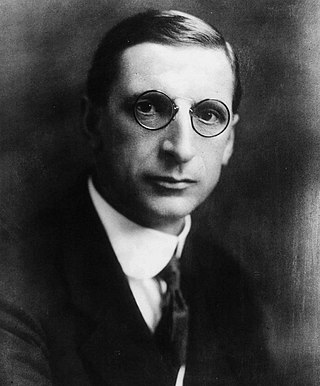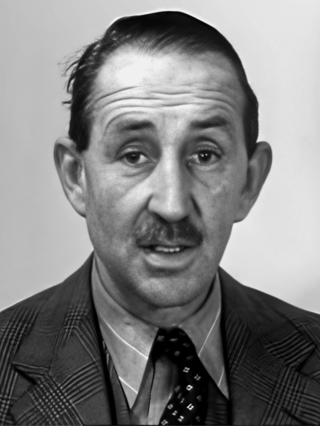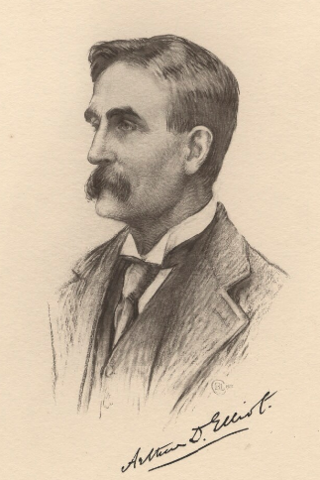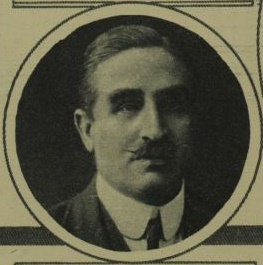Related Research Articles
A university constituency is a constituency,used in elections to a legislature,that represents the members of one or more universities rather than residents of a geographical area. These may or may not involve plural voting,in which voters are eligible to vote in or as part of this entity and their home area's geographical constituency.

The Government of Ireland Act 1920 was an act of the Parliament of the United Kingdom. The Act's long title was "An Act to provide for the better government of Ireland";it is also known as the Fourth Home Rule Bill or (inaccurately) as the Fourth Home Rule Act and informally known as the Partition Act. The Act was intended to partition Ireland into two self-governing polities:the six north-eastern counties were to form "Northern Ireland",while the larger part of the country was to form "Southern Ireland". Both territories were to remain part of the United Kingdom of Great Britain and Ireland and provision was made for their future reunification through a Council of Ireland. The Act was passed by the British Parliament in November 1920,received royal assent in December and came into force on 3 May 1921.

The Parliament of Northern Ireland was the home rule legislature of Northern Ireland,created under the Government of Ireland Act 1920,which sat from 7 June 1921 to 30 March 1972,when it was suspended because of its inability to restore order during the Troubles,resulting in the introduction of direct rule. It was abolished under the Northern Ireland Constitution Act 1973.

The Irish component of the 1918 United Kingdom general election took place on 14 December 1918. It was the final United Kingdom general election to be held throughout Ireland,as the next election would happen following Irish independence. It is a key moment in modern Irish history,seeing the overwhelming defeat of the moderate nationalist Irish Parliamentary Party (IPP),which had dominated the Irish political landscape since the 1880s,and a landslide victory for the radical Sinn Féin party. Sinn Féin had never previously stood in a general election,but had won six seats in by-elections in 1917–1918. The party had vowed in its manifesto to establish an independent Irish Republic. In Ulster,however,the Unionist Party was the most successful party.
William Martin Smyth is a Northern Irish unionist clergyman-politician. An ordained minister of the Presbyterian Church in Ireland,he was Grand Master of the Orange Order during much of the Troubles and served as the Ulster Unionist Party (UUP) Member of Parliament (MP) for Belfast South from 1982 to 2005. He was also a vice-president of the Conservative Monday Club.

Basil Stanlake Brooke,1st Viscount Brookeborough,,styled Sir Basil Brooke,5th Baronet,between 1907 and 1952,and commonly referred to as Lord Brookeborough,was an Ulster Unionist Party (UUP) politician who served as the third Prime Minister of Northern Ireland from May 1943,until March 1963.

Mid Ulster is a parliamentary constituency in the UK House of Commons. The current MP is Cathal Mallaghan,of Sinn Féin,who was first elected at the 2024 election.
The 1921 Irish elections took place in Ireland on 24 May 1921 to elect members of the House of Commons of Northern Ireland and the House of Commons of Southern Ireland. These legislatures had been established by the Government of Ireland Act 1920,which granted Home Rule to a partitioned Ireland within the United Kingdom.

Joseph Devlin was an Irish journalist and influential nationalist politician. He was a Member of Parliament (MP) for the Irish Parliamentary Party in the House of Commons of the United Kingdom. Later Devlin was an MP and leader of the Nationalist Party in the Parliament of Northern Ireland. He was referred to as "the duodecimo Demosthenes" by the Irish politician Tim Healy which Devlin took as a compliment.

William Graham Nicholson,PC,JP was a British Liberal Unionist and later Conservative Party politician.
William John Stewart was a Unionist politician in Northern Ireland who formed a Progressive Unionist Association to protest "autocratic" tendencies in the Unionist government and its lack of action on unemployment.

Arthur Ralph Douglas Elliot was a British journalist and Liberal Unionist politician.

Sir Robert John Lynn was a British Ulster Unionist Party politician. In March 1924 he was knighted.
Captain Alexander Crawford Browne was an Ulster Unionist Party politician.

Thomas Henry Sloan (1870–1941) was an Irish unionist and co-founder of the Independent Orange Order (IOO). The choice of a loyalist workers association over the official Conservative Unionist nominee,he represented the Belfast South constituency as an Independent Unionist at the Westminster parliament from 1902 to 1910. He and members of the IOO supported workers in the Belfast Lockout of 1907.
The 1908 Hastings by-election was a Parliamentary by-election held on 3 March 1908. The constituency returned one Member of Parliament (MP) to the House of Commons of the United Kingdom,elected by the first past the post voting system.
Sir David Douglas Reid,1st Baronet,was the Unionist Member of Parliament for Down from 1922 until his death in 1939.
Thompson Donald was a Northern Irish Unionist politician.
Robert Gordon Sharman-Crawford PC was a unionist politician in Northern Ireland.
William Pirrie Sinclair was a politician in the United Kingdom who was twice elected to the House of Commons for the Liberal Party.
References
- ↑ Admissions to Peterhouse [or S. Peter's College in the University of Cambridge: A Biographical Register; Being an Exact Transcription of the Entries in the College Admission Books] from 1615 to 1887. Cambridge University Press. 1912. p. 584. Retrieved 9 November 2024.
- ↑ Cook, C.; Jones, P.; Sinclair, J.; Weeks, Jeffrey (20 April 1977). Sources in British Political History 1900–1951: Volume 4: A Guide to the Private Papers of Members of Parliament: L–Z. Springer. p. 14. ISBN 978-1-349-15762-4 . Retrieved 9 November 2024.
- 1 2 "Mr William Lindsay (Hansard)". api.parliament.uk.